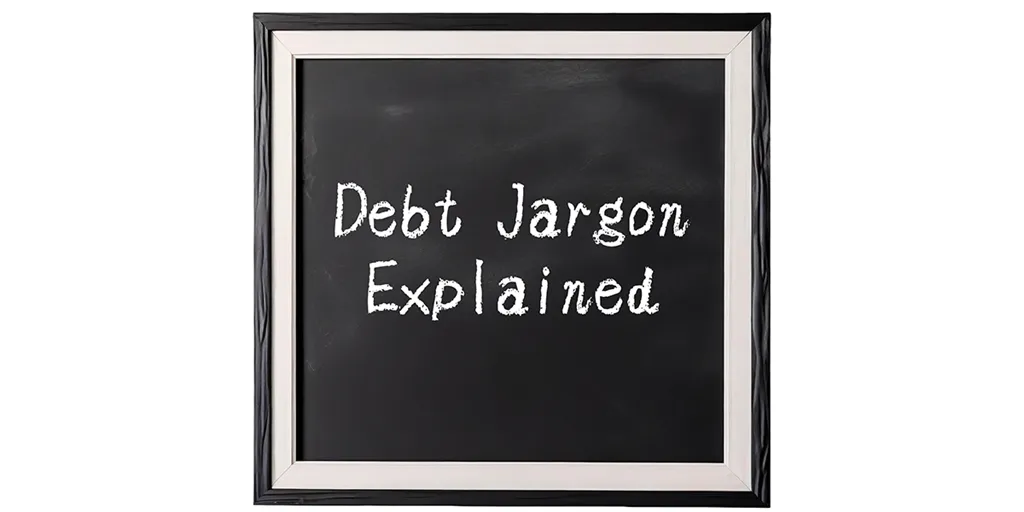If you’ve been in a debt solution, such as the Debt Arrangement Scheme (DAS) or a Protected Trust Deed (PTD), then you’ll no doubt be looking towards the future and embracing a life with problem debt behind you.
Once you have successfully completed your chosen debt solution, you may initially find it hard to get credit. Likewise, credit successfully obtained soon after a debt solution is completed might be for low amounts and with high interest rates.
To improve your credit score, there are a number of steps you can take to make you more attractive to future lenders if for example you are hoping to obtain a mortgage or other borrowing in the future.
In this guide, we will talk you through everything you need to know about understanding your credit file and various factors that lenders typically look for when deciding to lend to someone.
Before you can understand how to improve your credit score, you need to know what it currently looks like. To do this, you need to access your Credit File.
Understanding Your Credit File
What is a Credit File?
Your Credit File is an up-to-date collection of data about how you are managing your lines of credit as well as your address history and publicly available information about you such as decrees / CCJs / formal debt solutions. The information within your credit file informs a large part of a lender’s decision making process when deciding whether to lend to you and, if so, how much they are willing to lend and at what interest rate.
Credit Files are created and maintained by Credit Reference Agencies. Each reference agency has its own ways of collating this information, so the content of your credit files may be different depending on the agency/service you check.
What is a Credit Reference Agency (CRA)?
Credit Reference Agencies are companies that collate, store, and make available information about how you are managing your credit accounts, as well as publicly available information, such as electoral register, judgements, formal debt solutions etc.
There are 3 main CRAs in the UK. Experian, Equifax and TransUnion. Regardless of which service or app you use to check your credit report, the information they use will come from one or more of these CRAs.
Each agency operates independently, so some agencies might have more, less, or different information available. As such, a credit checking service like ClearScore, which gets its credit information from Equifax, might have different information to Credit Karma, which gets its information from TransUnion.
The table below shows some of the most well known credit report providers and the CRA(s) they use.
| Credit Report Provider | Credit Reference Agency |
|---|---|
| ClearScore | Equifax |
| Credit Karma | TransUnion |
| Money Supermarket | TransUnion |
| CheckMyFile | Combines data from all CRA's |
| Money Saving Expert (MSE) Credit Club | Experian |
What is a Credit Report?
A credit report is a user-friendly way of accessing and viewing the information on your credit file. When you access a credit reporting service like the ones listed above, what you are viewing is a credit report.
Where does my Credit Report come from?
Credit reports are created by credit reporting services like Credit Karma or ClearScore, but the underlying information used to create your credit report comes from your Credit File.
What’s the difference between my Credit File and a Credit Report?
Your credit file is a collection of raw data about you and your debt. A credit report is a version of your credit file that has been formatted to make it easier to look at and understand.
What information does a credit report contain?
The exact information contained in a credit report can vary from provider to provider, however you will typically see:
- Your address history
- What debts you currently or recently had.
- Your payment history for each of those debts.
- Any searches lenders have run on your credit file.
- Whether or not you are on the electoral role.
- Publicly available information about you e.g., decrees / CCJs / formal debt solutions
- Your credit “score”.
What is a Credit Score (and why it's not as important as you think)?
A credit score is a subjective rating provided by reporting agencies to give a visual indication as to how well you are maintaining your credit and how risky you may appear to a potential lender. The scoring models that affect this score will include some criteria lenders use when deciding whether to lend you money, but different lenders will assess an application for credit in different ways. So the link between a credit “score” and outcome of a credit application are not always directly related.
While useful in a general sense and for measuring improvement over time, your Credit Score is does not define whether you can obtain credit. Each lender has its own criteria and does its own assessment for each individual application.
What is a Credit Rating?
Credit rating is a term used to describe how each individual lender “rates” your “credit worthiness”.
There are several factors that lenders typically consider when assessing your creditworthiness. These may include your credit history, income and employment situation, your existing debt levels, and your overall financial health. Lenders may also consider other factors, such as your assets and the type of credit you are seeking.
Additionally, lenders may have different criteria for what they consider to be a good credit rating, so an individual's credit rating may be considered good by one lender but not by another. It's important to keep in mind that your credit rating is not set in stone and can change over time based on your financial behaviour.
What are Credit searches / checks?
A credit search or “check” is when a request is made to a credit reference agency for information from your credit file. When you apply for a credit product, or ask if you are eligible for one, the lender will ask to perform a credit check.
There are two types of credit search:
Hard search – carried out when you are applying for a credit product. This will be visible for 12 months to anyone carrying out a search of your file and is a contributing factor when a lender is assessing an application for credit.
Soft search – carried out when checking eligibility for a credit product or searching your own file. This is only visible to you and is not visible to lenders. Soft searches also remain on the file for 12 months.
What does a Default mean on my credit file?
A default is a specific term which is added to your credit file to show that you have broken the terms and conditions of your credit agreement. This usually happens after you have missed between 3 and (more usually) 6 months payments but can vary depending on the details of your arrangement. An account can only default once, but after this happens, that creditor may consider taking legal action to collect the debt.
A default is preceded by a default notice, usually sent by letter (and with the clear heading “Default notice served under section 87(1) Consumer Credit Act 1974”) giving you at least 2 weeks to catch up with any missed payments. If you comply, your account carries on as normal but if you don’t, the account will default.
What will my Credit File look like after a debt solution?
A debt solution, such as DAS, Protected Trust Deed or Bankruptcy, will be displayed on your credit file and will remain there for 6 years.
It’s important to note that any missed payments and defaults stay on your credit file for 6 years too. So even after finishing a debt solution (many of which last 4-5 years), previous issues may still be visible to prospective lenders and will likely be factored into their decision making.
As such, any credit you are offered soon after a debt solution has been completed is likely to be for a low amount and at high interest rates.
Note: Debt Solutions are present on your Credit File for 6 years starting from the date you entered the solution, not from the end. In other words, if your solution lasted for 4 years, it would remain on your credit file for a further 2 years.
How do I rebuild my credit?
Rebuilding your credit can be broadly split into three main areas:
Information about you
When assessing you for products, lenders need to make sure: You are who you say you are, and. They know how to reach you. While you often provide these details as part of your application with them, they will also seek to verify this against your credit report. As such it is crucial to ensure information on your credit report is up to date and accurate. Once of the most important pieces of information to keep up to date is your electoral roll details. Being on the electoral roll at your current address helps creditors verify the address on your application. Some lenders take into account the length of time you’ve been on the electoral roll at one address when assessing whether to lend to you, as moving address regularly could be seen as a sign of not managing financial commitments.
To improve your credit rating:
- Make sure you are on the electoral roll at your current address (and update it as soon as you move).
- Make sure all information on your credit file is correct (for example checking your address history is accurate).
How you manage your debts
Once lenders are comfortable, they know who you are and how to reach you; they will want to know how well you manage your debts.
Firstly, lenders will want to know that you repay your debts on time, and at the agreed upon amount. If you have missed any repayments, not paid the correct amount, or have any defaults on your credit file, these will likely count against you on a credit application.
Secondly, lenders will want to ensure you are using what credit you do have responsibly. One key metric they focus on for this is “credit utilisation”. Credit utilisation is a way of describing how close you get to your credit limit on products like credit cards. If you are consistently at or near your credit limits, lenders will view this as a sign that you are struggling to repay your existing debts and, as such, may not be able to manage more.
To improve your credit rating:
- Don’t miss any payments. Even one missed payment can result in a declined application.
- Keep your credit utilisation below 25%, e.g., if you have a credit card with a £1,000 limit, try to keep the outstanding balance below £250.
Recent Activity
Finally, creditors will look at recent activity on your account to determine if there are any other risk factors. Two areas that can be risk indicators are New Accounts and Hard Searches.
New Accounts
New accounts on your credit file indicate to lenders that you are taking on new forms of debt. If you are opening multiple new accounts in a short period, this suggests to lenders that you may be overly reliant on credit, making lending to you risky.
Hard Searches
As mentioned above, Hard Searches on your credit file are often used as a factor when assessing you for a credit product. Generally, the more hard searches recorded on your credit file in a short space of time, the more likely you are to be declined for credit.
Lenders don’t have access to the contents of a Hard Search i.e., what you applied for, with whom, how much and what the repayments would be. As such, having multiple recent hard searches on your file may cause lenders a lot of uncertainty. Remember, lenders need to be able to assess how likely you are to be able to repay them, so uncertainty is the enemy!
Example
Mr. Smith has asked you (Bank of Example) for a loan. Naturally, the first question you would ask before lending him the money is – Can he pay me back? You ask him for some details around how much he earns and what bills he must pay and, fortunately, it looks like he has enough money left over to pay you back.
Next, you get his credit file. Having enough money to repay is great, but does Mr. Smith have a good track record with repaying his debts? Mr. Smith has a good track record, he’s up to date with all his payments, doesn’t have any court judgments against him and he’s been living at the same place for quite a while. Some of his credit cards have been open for quite a while and he is not close to maxing them out so, again, it looks like he could be trusted to repay you on time for the duration of the loan.
Then, you notice something. In the last 2 weeks there have been three hard searches on Mr. Smith’s credit file. Now, Hard Searches only occur when someone applies for credit, so that means Mr. Smith has applied for THREE credit products in the last 2 weeks. Remember, you cannot see what he applied for, with whom, how much he asked for and what the repayments would be. You do not even see whether he was accepted. You now might assume one of the following is true.
- Mr Smith is coming to you because the three previous lenders declined him If that is the case: What do they know that you do not?
- At least one of the other lenders agreed to lend Mr. Smith money. If this is the case, then he cannot afford as much as you originally thought. Because it is so recent, you cannot see any details of those arrangements on Mr. Smith’s credit file, so you cannot correctly assess whether he can afford to repay you.
- What has changed/is so urgent in Mr. Smith’s life that he is continually applying for credit?
With the above in mind, is lending Mr. Smith the money worth the risk?
As you can see from the above example, Hard Searches on a credit file can be indicators of increased risk to lenders. As such, they may not want to accept that additional risk and decline your application for credit.
Conclusion
Improving your credit worthiness in the eyes of lenders is not an overnight process. But there are steps you can take both during a debt solution and after it is completed to set yourself on the right track. If you want to improve your credit, make sure you adhere to the following principles:
- Make sure you are on the electoral roll: Being on the electoral roll can help improve your credit rating, as it provides lenders with proof of your address and can make it easier for them to verify your identity.
- Check your credit report regularly: Your credit report contains information about your credit history, including any accounts you have open and any late payments you have made. Reviewing your credit report regularly can help you identify any errors or inaccuracies and can also help you stay on top of your credit history. Remember, any check you undertake is referred to as a soft search and will not register on your credit report.
- Compare default dates with date of the start of your debt solution. If an account has been updated as in default on a date after your debt solution started, that default will remain visible for longer than your debt solution. Consider asking the lender to backdate the default so that it disappears at the same time as your debt solution disappears.
- Pay your bills on time: Making timely payments on your bills and other debts will help improve your credit rating, as it shows lenders that you are able to manage your finances responsibly.
- Keep outstanding balances under 25% of your limit: If you have been able to obtain credit after completing your debt solution, be very mindful of how you manage that credit. Lenders generally like to see a low credit utilisation, as it shows that you are managing your credit responsibly. Keeping your credit utilisation below 25% of your credit limit can help improve your credit rating.
- Avoid applying for new credit unnecessarily: Each time you apply for new credit, the hard search remains on your file for a year, and it could have a negative impact on your credit rating. Avoid applying for new credit unless it is necessary and try to space out your credit applications if possible. If you are approaching the 6th anniversary of your debt solution being recorded on your credit file, consider whether you really need to apply for credit now, or could you wait until the debt solution is no longer visible on your file?
- Use eligibility checkers. In many instances it is possible to check if you are eligible for a credit product without actually applying for it. Bearing in mind that hard searches remain on your credit file for a year, try to minimise applying for credit which you are unlikely to be given, leaving an unnecessary trail of hard searches on your credit file.
Remember, improving your credit rating takes time and dedication. Be patient and consistent in your efforts, and you should see improvement over time.




